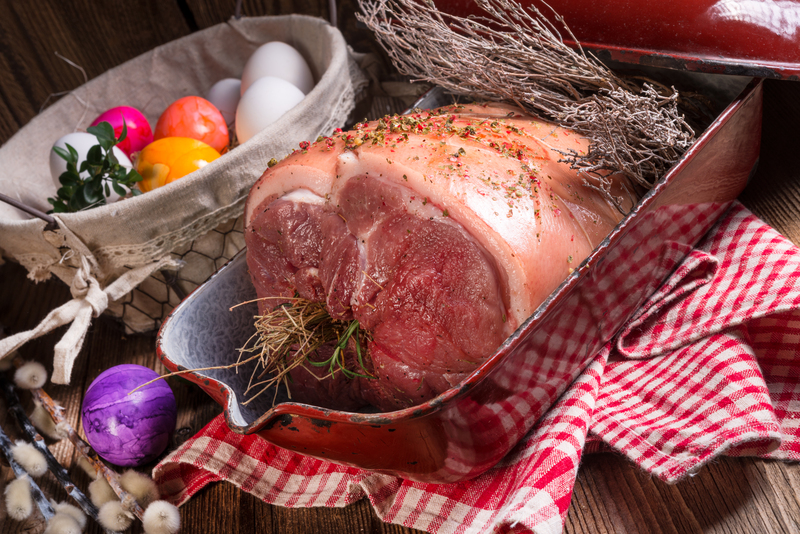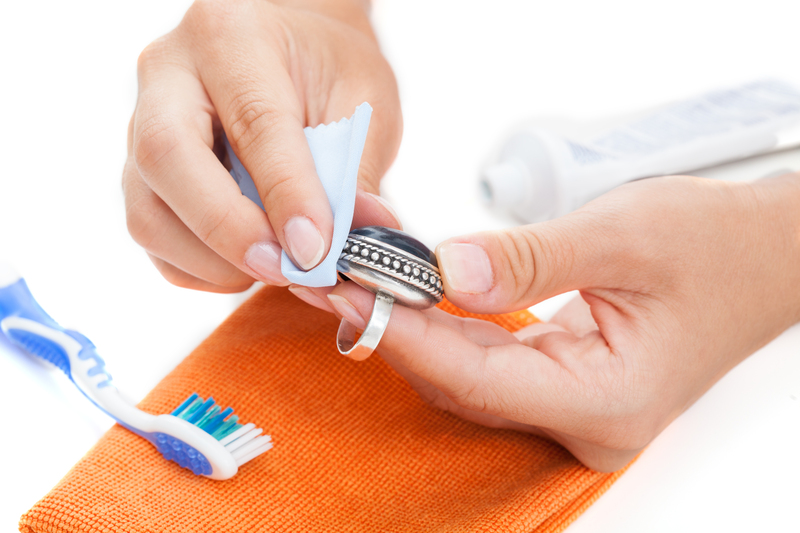Refreshing Your Jewels: Expert Cleaning Methods
Posted on 06/09/2025
Refreshing Your Jewels: Expert Cleaning Methods
Jewelry holds sentimental and financial value, making it essential to keep every piece sparkling and pristine. Whether you wear your favorite necklace daily or reserve your gemstones for special occasions, regular maintenance preserves shine and prevents damage. In this comprehensive guide, we delve into expert methods for refreshing your jewels. You'll learn jewelry cleaning tips suitable for various metals and gemstones, discover how to maintain luster between professional cleanings, and explore answers to common questions about jewelry care.

Why Regular Jewelry Cleaning Matters
Everyday life exposes your jewelry to elements that cause tarnish, grime, and dullness. Natural skin oils, lotions, perfumes, and even household dust can diminish sparkle over time. Understanding the importance of regular jewelry cleaning is the first step in refreshing your jewels and preserving their brilliance.
- Maintain Shine: Consistent cleaning prevents buildup of oils and dirt, helping your jewelry sparkle like new.
- Protect Stones: Uncleaned settings can loosen stones or cause unseen long-term damage.
- Prevent Irritation: Accumulated grime may cause skin irritation or allergies, especially near piercings.
- Enhance Value: Clean, well-cared-for jewelry maintains or even increases its resale value over time.
Understanding Your Jewelry Materials
Before attempting any cleaning method, it's critical to know what your jewelry is made of. Different gemstones and metals require tailored care, and the wrong approach can cause permanent harm. Here's a quick overview of common materials:
- Gold: Tarnish-resistant but may scratch; best cleaned with gentle methods.
- Silver: Prone to tarnishing; may require special cleaners or polishes.
- Platinum: Durable, resists tarnish, but can develop a patina if not cared for.
- Diamonds & Hard Gemstones: Robust but can loosen from settings or dull with grime.
- Soft Gemstones (Pearls, Opals, Turquoise): Highly sensitive to chemicals and scratch easily.
- Costume Jewelry: Usually composed of mixed materials or platings, requiring extra caution as water may weaken adhesives.
Tip: If you're unsure about your jewelry's composition, consult a trusted jeweler before starting the cleaning process.
Professional vs. At-Home Jewelry Cleaning: What's the Difference?
While professional jewelry cleaning services utilize ultrasonic cleaners, steamers, and expert tools, most items can be refreshed at home with proper techniques. Understanding the difference helps you determine how often to seek professional assistance and when it's safe to refresh your jewels at home.
- Professional Cleaning: Ideal for annual maintenance, complicated pieces, or heavily soiled items.
- At-Home Cleaning: Suitable for routine maintenance and in-between professional visits. Use only recommended solutions to avoid accidental damage.
Expert Cleaning Methods for Refreshing Your Jewels
1. Gentle Soap and Water Method
Best for: Gold, Platinum, Diamonds, Most Gemstones
- Mix a small amount of mild dish soap (free of harsh chemicals) with lukewarm water.
- Soak jewelry pieces for 10-20 minutes.
- Use a soft-bristled brush (such as a clean toothbrush) to gently remove dirt from crevices and settings.
- Rinse thoroughly under running water and pat dry with a lint-free cloth.
Note: Avoid using hot water, especially with fragile stones, as it may cause cracks or loosen adhesives.
2. Baking Soda Paste for Silver
Best for: Sterling Silver (not for oxidized finishes or pieces with glued-in stones)
- Mix three parts baking soda with one part water to form a paste.
- Apply the paste with a soft cloth, rubbing gently in circular motions.
- Rinse thoroughly and buff with a clean, dry cloth.
Caution: Avoid using baking soda on gold or soft gemstones, as abrasives may cause scratches.
3. Ammonia Solution (Occasional Use)
Best for: Diamonds and Hard Gemstones (never use on pearls, opals, or costume jewelry)
- Mix one part household ammonia with six parts water.
- Soak the jewelry for no more than one minute.
- Remove, gently brush, rinse, and dry.
Warning: Overuse can damage both metals and stones. Never use this solution on soft or porous gemstones.
4. Commercial Jewelry Cleaners
There are many specialized cleaning solutions available, tailored for gold, silver, diamonds, and costume jewelry. Always follow manufacturer instructions, and test on a small, inconspicuous area first.
- Liquid Dips: Quick for precious metals but can harm glued stones or enamel.
- Jewelry Polishing Cloths: Non-abrasive, perfect for daily touch-ups and shining metal surfaces.
5. Ultrasonic Cleaners (With Caution)
Ultrasonic jewelry cleaners use sound waves to dislodge dirt and grime. While these machines are effective for diamonds and sturdy gemstones, they can damage soft, treated, or porous stones and loosen mountings.
- Never use an ultrasonic cleaner for pearls, opals, emeralds, or jewelry with glued-in settings.
- Follow all manufacturer guidelines and limit cleaning sessions to a few minutes.
- Inspect jewelry for loose stones before and after ultrasonic cleaning.
Special Care for Delicate and Antique Jewelry
Delicate, antique, or heirloom jewelry demands the utmost caution. These treasures often have fragile settings or stones that simply can't handle traditional cleaning techniques.
- Use a soft, damp cloth to gently wipe pieces after wearing.
- Consider professional cleaning for complicated or valuable vintage jewelry.
- Avoid soaking or submerging antique pieces, as older glue and settings can become compromised.
Refreshing Pearls, Opals, and Porous Gemstones
Pearls, opals, turquoise, and other porous gemstones possess delicate surfaces easily damaged by chemicals, abrasives, and moisture.
- Wipe gently with a soft, damp cloth after each wear. This removes skin oil and prevents yellowing.
- Never soak pearls or opals in water or cleaning solutions.
- String of pearls? Check the silk or nylon thread regularly for fraying and have them professionally restrung as needed.
How to Refresh Costume Jewelry
Costume jewelry typically uses more affordable metals and stones, often glued in place. Excess water, steam, or harsh chemicals can weaken adhesives or strip finishes.
- Clean with a dry, soft cloth or barely damp cotton swab for crevices.
- If desperately dull, try a gentle baby wipe and dry immediately.
- Avoid abrasives, dips, or soaking.
Everyday Habits to Keep Your Jewels Sparkling
Beyond deep cleaning, daily habits prolong the lifespan and shine of your favorite pieces:
- Put jewelry on last after lotions, perfumes, and cosmetics.
- Remove accessories before swimming, showering, or exercising.
- Store in a lined jewelry box or pouch to prevent scratches and reduce exposure to air and moisture.
- Inspect clasps and settings regularly; loose stones can be tightened by a professional jeweler.
Storage Tips for Prolonged Shine
How and where you store jewelry is just as vital as cleaning. Poor storage can accelerate tarnish and increase your jewelry's exposure to damage.
- Keep pieces separate inside soft pouches or fabric-lined boxes to avoid scratches.
- Use anti-tarnish strips or silica packs in silver storage containers to prevent oxidation.
- Hang necklaces to avoid tangling.
- Avoid bathrooms; humidity promotes tarnish, especially for silver.
Signs It's Time for Professional Cleaning or Repair
Even with diligent care, some jewelry inevitably needs a professional's touch. Seek expert cleaning or inspection if you notice:
- Persistent dullness after home cleaning attempts.
- Loose stones, prongs, or damaged clasps.
- Heavily tarnished silver or stubborn grime in intricate settings.
- Discoloration, cracks, or chips in gemstones.
DIY Myths: What to Avoid When Cleaning Jewelry
Many well-intentioned internet tips can actually cause harm. Safeguard your jewels by avoiding these common mistakes:
- Toothpaste: Too abrasive; it will scratch most metals and stones.
- Baking soda or salt scrubs for soft gemstones: Abrasives can scratch opals, pearls, and turquoise.
- Vinegar or lemon juice: The acids can erode softer stones and damage finishes.
- Soaking costume jewelry: Water damages adhesives and makes stones fall out.

Frequently Asked Questions About Refreshing Jewelry
How often should I clean my jewelry at home?
Most frequently-worn pieces like rings and earrings benefit from a gentle clean once every two weeks. For items you wear less often, cleaning them before and after special occasions is usually sufficient.
Can I use jewelry cleaning machines at home?
Ultrasonic machines are effective but risky without proper knowledge. Stick to manual cleaning for anything other than simple diamond or gold items, and consult your jeweler if in doubt.
How can I keep my engagement ring sparkling every day?
Mix mild dish soap with warm water, use a soft toothbrush to clean under the setting, rinse, and pat dry. Avoid using lotions directly on your hands while wearing the ring and store separately when not worn.
Is professional jewelry cleaning worth it?
Absolutely! A professional cleaning (once or twice a year) preserves pieces, tightens settings, removes deep tarnish, and gives your jewelry that just-bought brilliance.
Conclusion: Let Your Jewels Shine Bright
Regular care, gentle cleaning, and mindful storage are the cornerstones of refreshing your jewels. Whether opting for professional jewelry services or mastering safe at-home techniques, investing the time ensures your cherished accessories remain luminous for generations. Follow these expert methods and your jewelry will reward you with lasting beauty and enduring value.
Ready to refresh your favorite jewels? Start with gentle care, build good habits, and consult a professional when in doubt. Your collection will sparkle brighter than ever!
Latest Posts
Refresh Your Home by Tackling Stubborn Pet Odors
Efficiently Clean Mould from Your Window Sills Today
Reinvent your home this season using our Spring Cleaning Checklist





